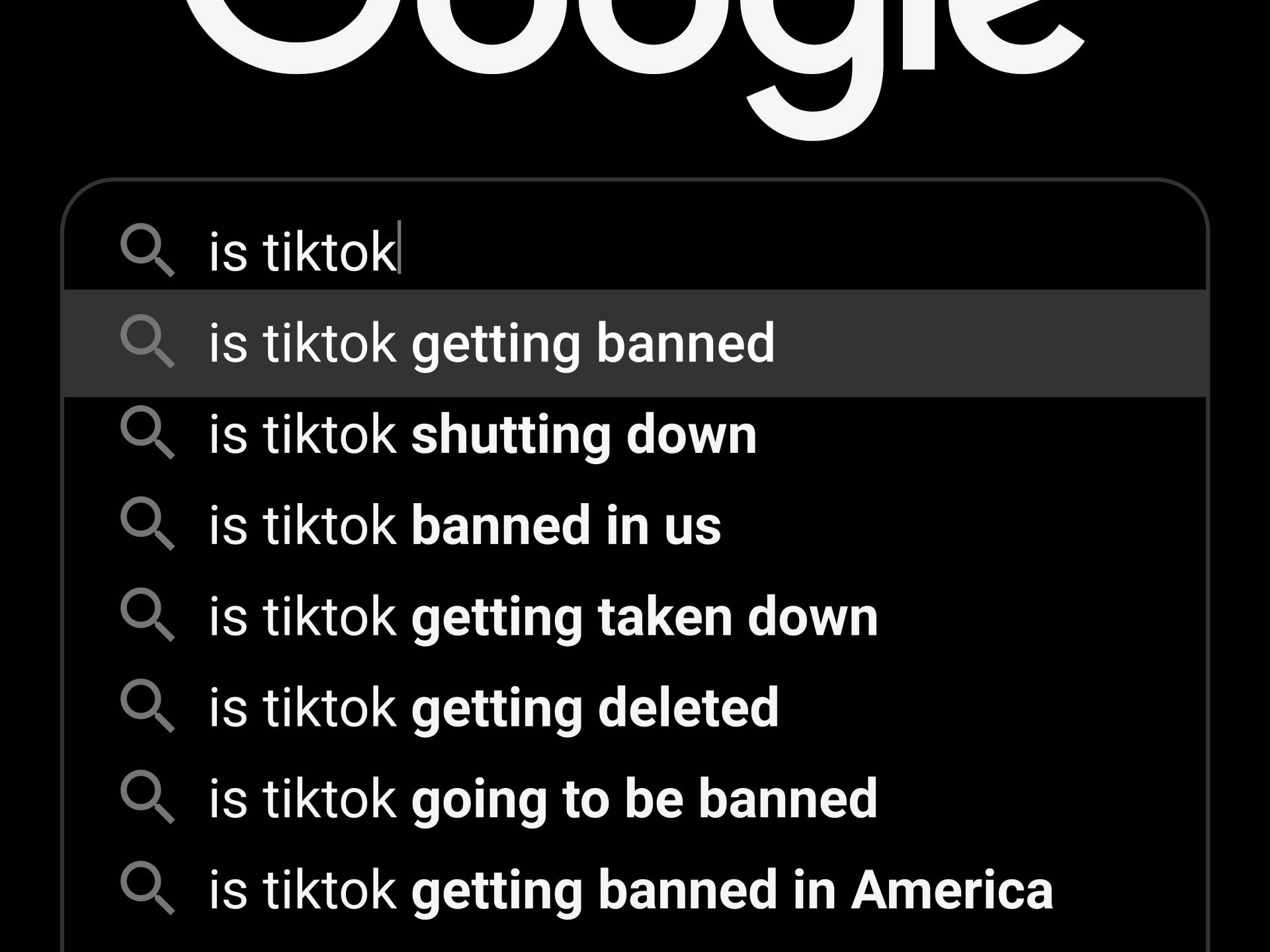The Lamen
A TIKTOK BAN SEEMS IMMINENT, BUT THE COMPANY DOESN’T SEEM THE LEAST BIT WORRIED. | IMAGE: UNSPLASH
IS THE UNITED STATES MAKING MOVES TOWARD A BAN ON TIKTOK?
Now, the Biden Administration is pickup up where its predecessor left off: warning TikTok that if its Chinese parent company, ByteDance, does not sell its stake in the U.S. version of the app, the app could face a nationwide ban.
This is not the first time that the app has been threatened with a nationwide ban in the U.S.
- ex-Secretary of State Mike Pompeo stated that the United States is considering banning TikTok back in July 2020, citing privacy concerns as the reason.
- Trump later confirmed that he plans to bar the app from operating in the United States. “As far as TikTok is concerned we’re banning them from the United States,” he told reporters.
- It was followed by an executive order signed by then-President Trump stating that the app allowed the Chinese Communist Party to access the “personal and proprietary information” of users.
- It’s been three years since Trump failed to force the sale of TikTok’s stakes to the U.S. but plans to quell the security concerns have been underway for some time now.
- TikTok was reported to be negotiating with representatives of the Committee on Foreign Investment in the United States (CFIUS) to resolve national security concerns.
TikTok’s CEO responded to the regulators this Wednesday, stating that the sale won’t resolve the national security concerns over the app.
- “If protecting national security is the objective, divestment doesn’t solve the problem: a change in ownership would not impose any new restrictions on data flows or access, ” TikTok spokeswoman Brooke Oberwetter said in a statement.
“If protecting national
security is the objective,
divestment doesn’t solve the problem.”
- ByteDance founders own 20 percent of the company, with another 20 percent of the shares owned by employees, and the other 60 percent by global investors.
- TikTok CEO Shou Zi Chew declined to say whether ByteDance founders were open to selling their shares. He also ruled out an IPO of TikTok in the near future – which some politicians said could address some national security concerns.
A TIKTOK BAN WASN’T ALWAYS THE PLAN. AT LEAST FOR BIDEN.
We got here simply because of the stronghold that the Chinese government exercises over every Chinese-owned company – which requires that any data collected by the app has to be shared with the Chinese government.
- “Many of the legal issues that TikTok used to block the forced sale under the Trump administration would still be relevant. And there’s still the high possibility that the Chinese wouldn’t allow a sale,” stated Adam Segal, a Chinese policy and national security expert at the Council of Foreign Relations.
- Former employees revealed that the ties between TikTok and ByteDance go far beyond user data.
- The app can potentially spread propaganda and allow for selective censorship, like how TikTok instructed moderators to censor videos that mentioned Tiananmen Square, Tibetan independence, or the banned religious group Falun Gong, according to a report from 2019.
TikTok has already been banned on devices owned by federal government employees in the U.S. and has even received a nationwide ban in regions like India.
- A bipartisan group of 12 senates introduced a bill last week, which would allow the Commerce Department to impose restrictions or outright ban any technologies from China (or Russia, North Korea, Iran, Venezuela, and Cuba) that they deemed to pose national security risks.
However, things are not as simple as they sound.
- TikTok was the most-downloaded app in 2020, with nearly 730 million installations around the world – and over 100 million active users in the United States.
- Users spent significantly more time on the app – a result of the For You feed – getting advertisers to spend astronomical amounts.
- The bipartisan law would imminently alter how U.S. influencers operate – losing access to what has been essentially a “goldmine” for targeting the younger generation.
The thing is, the internet does not belong to the government.
- Most of the existing TikTok bans in the U.S. have been implemented in government institutions and universities that have been empowered to keep an app off their networks or devices.
While all this is happening, TikTok seems to make it clear that the company plans to resist this ban, and it may already have a plan formulated.
- TikTok’s CEO says that the company has “spent so much money building these data-sovereignty projects around the world” that it would make Chinese law getting access to U.S. user data impossible.
- What he refers to is TikTok’s Project Texas, which involves working with Larry Ellison’s Oracle to store all U.S. user data in Oracle’s cloud infrastructure.
“The idea behind
Project Texas is it
won’t matter
what the Chinese or
any law says.”
- The deal requires that the training of the TikTok algorithm only occur in the Oracle could infrastructure – free from the influence of ByteDance employees – stated a letter obtained by the New York Times. It also suggested that the company will be working with a third party to check the algorithm for security.
- “The idea behind Project Texas is it won’t matter what the Chinese law or any law says, because we’re taking U.S. user data and we’re putting it out of their reach.” Mr. Chew said.
Standing before the Congress on March 23, TikTok CEO Shou Zi Chew will testify on “TikTok’s consumer privacy and data security practices, the platforms’ impact on kids, and their relationship with the Chinese Communist Party.”
